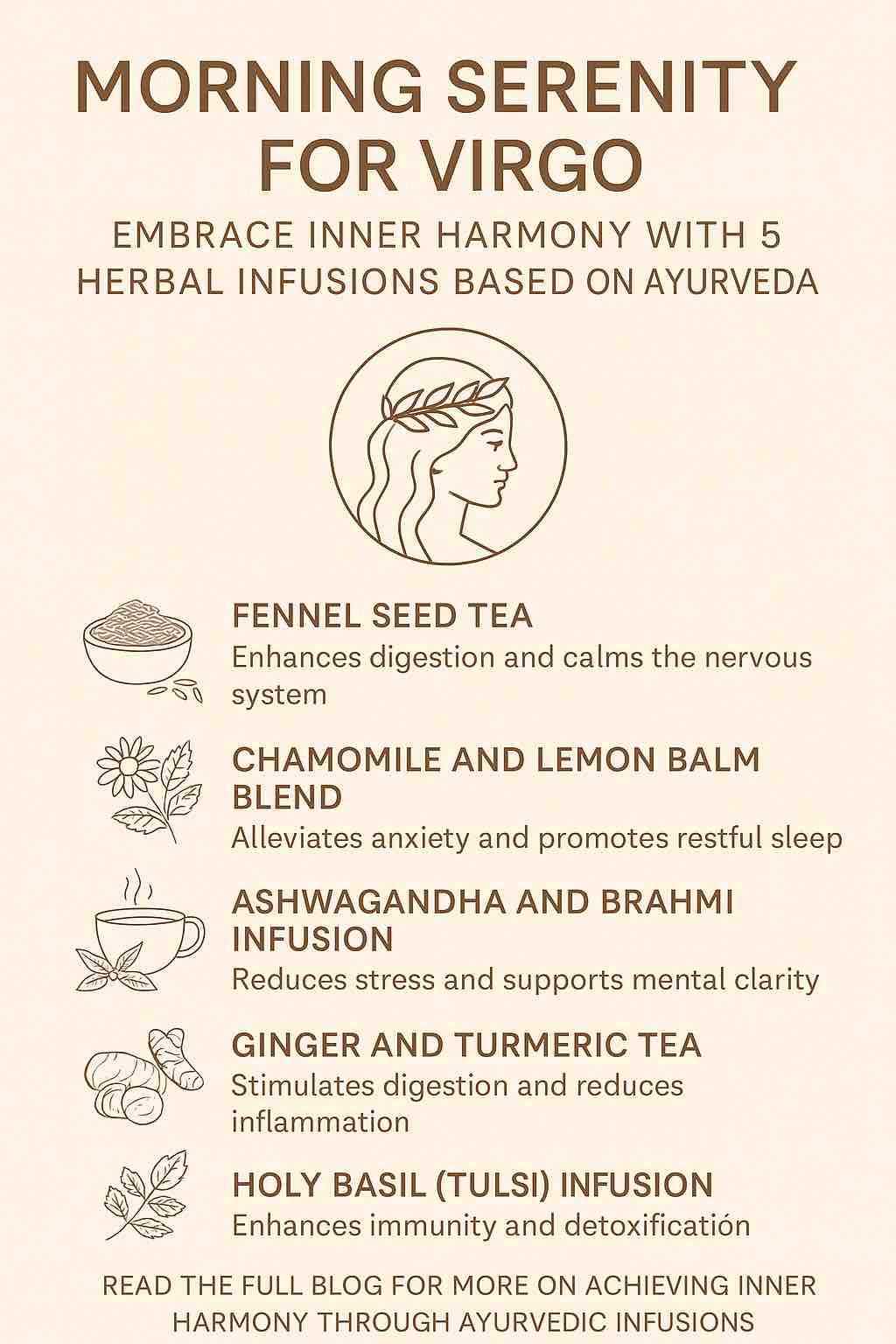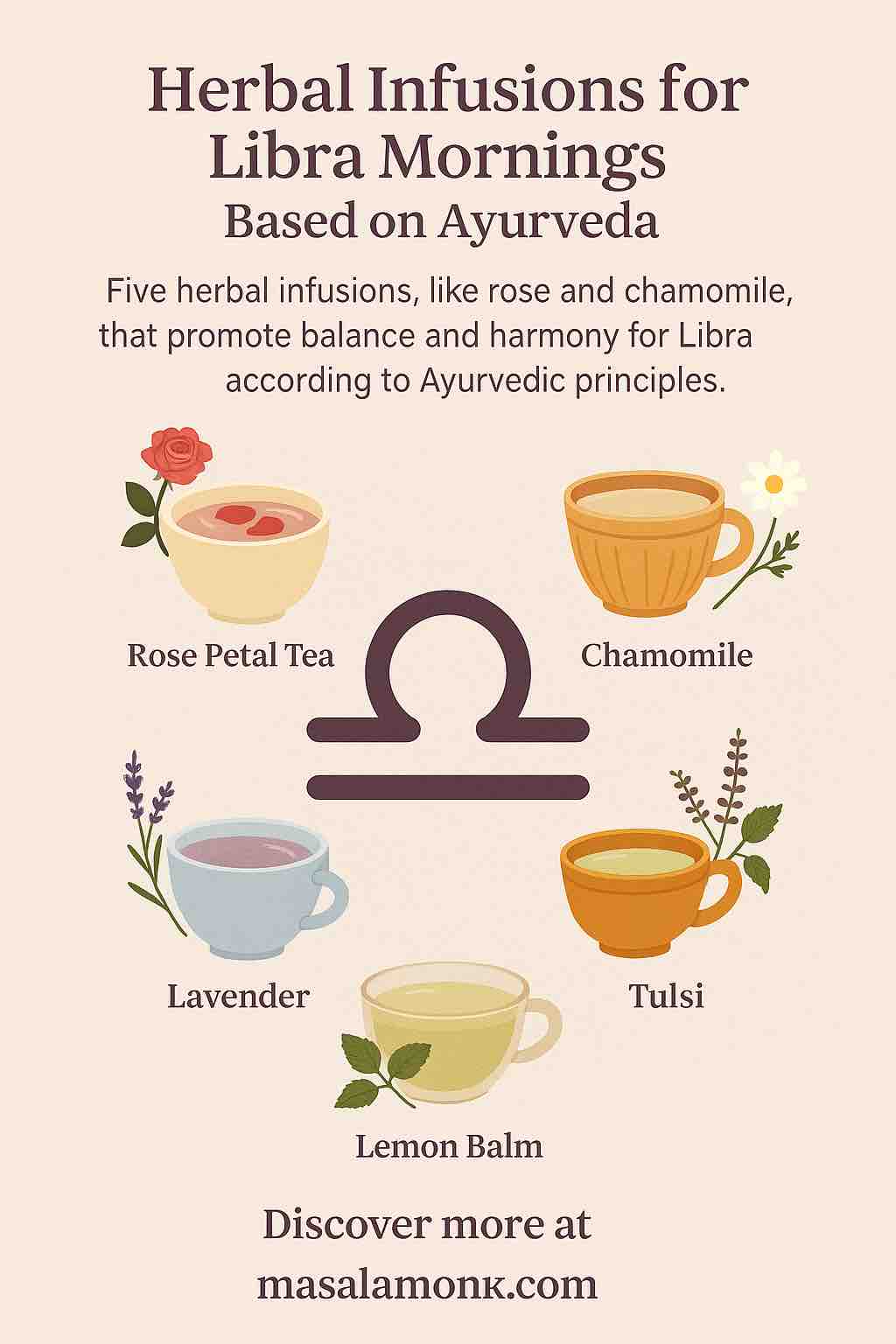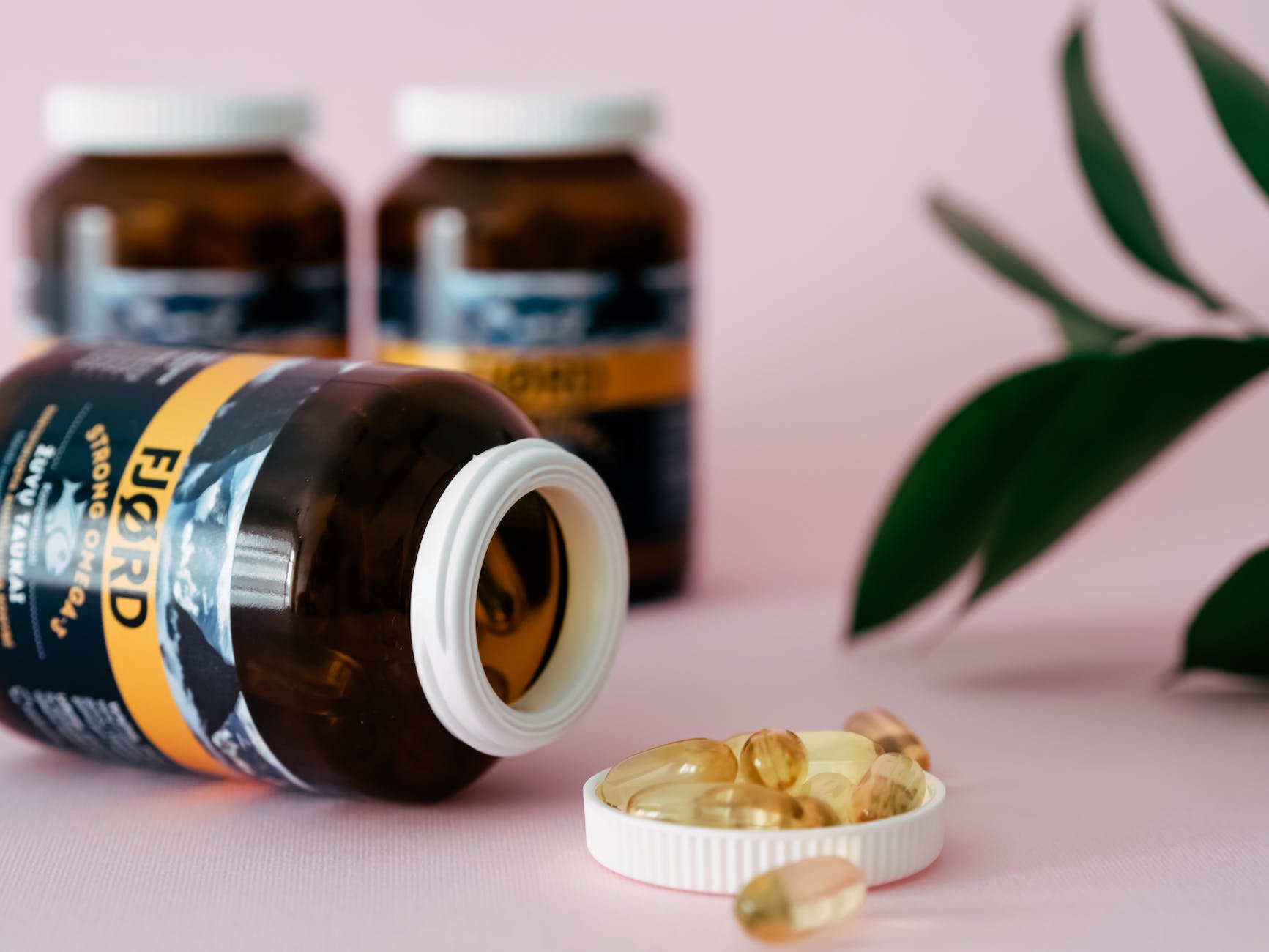
The Astrological and Ayurvedic Essence of Virgo’s Health
Virgo, an earth sign ruled by Mercury (Budha), symbolizes intellect, meticulousness, and a profound connection to health and hygiene. Ancient astrological texts such as Brihat Jataka by Varahamihira and Phaladeepika by Mantreswara identify Virgo’s planetary ruler Mercury as the governor of the nervous system, intestines, and digestive tract. This explains Virgo’s predisposition toward digestive sensitivities, nervous tension, and a high need for mental clarity.
Ayurveda, the holistic medical science of ancient India, complements this by associating Virgo primarily with the Pitta and Vata doshas—elements governing digestion, metabolism, and nervous function. When imbalanced, these doshas can cause symptoms such as acidity, bloating, anxiety, and restlessness.
To harmonize these energies, morning revitalization rituals involving targeted herbal infusions can be profoundly beneficial. This blog post delves into five powerful Ayurvedic herbal infusions tailored for Virgo, rooted in ancient wisdom and designed to restore inner balance and serenity.
Virgo in Ancient Texts: An Astrological and Ayurvedic Perspective
- Mercury’s Influence (Budha): Mercury governs communication, intellect, and the nervous system. In Brihat Jataka, Mercury’s rulership of Virgo is linked to health conditions related to digestion, intestines, and anxiety.
- Virgo’s Body Zones: According to Phaladeepika, Virgo corresponds to the digestive tract, spleen, and nervous system, highlighting the importance of digestive fire (Agni) and neural balance.
- Dosha Imbalances: Ayurvedic classics like Charaka Samhita and Ashtanga Hridaya describe the effects of excess Pitta (heat, acidity) and Vata (nervousness, dryness) on the gut and mind, aligning perfectly with Virgo’s common health concerns.
The 5 Herbal Infusions for Virgo: Properties, Benefits, and Preparation
1. Fennel Seed Tea — The Digestive Harmonizer
Astrological Connection: Fennel seeds reflect Mercury’s qualities—sharp, clear, and calming—making them ideal for Virgo’s digestive and nervous system.
Ayurvedic Properties: Sweet, pungent, and cooling; pacifies Pitta and Vata.
Health Benefits:
- Stimulates Agni (digestive fire), reduces bloating and gas
- Calms nervous tension and soothes the intestinal lining
- Promotes detoxification
Preparation: Crush 1 teaspoon of fennel seeds and steep in boiling water for 5–7 minutes. Strain and drink warm.
2. Chamomile and Lemon Balm Blend — The Calming Duo
Astrological Connection: Both herbs embody cooling, soothing qualities resonant with Virgo’s nervous tendencies and need for calm.
Ayurvedic Properties: Bitter and sweet; pacifies Pitta and Vata.
Health Benefits:
- Alleviates anxiety and stress-related digestive discomfort
- Supports restful sleep and mental clarity
- Possesses anti-inflammatory and mild sedative effects
Preparation: Combine equal parts dried chamomile and lemon balm; steep a teaspoon in hot water for 5–7 minutes.
3. Ashwagandha and Brahmi Infusion — The Mind-Body Rejuvenator
Astrological Connection: Ashwagandha and Brahmi are revered adaptogens that stabilize nervous system imbalances and boost cognitive power, directly supporting Mercury’s mental domain.
Ayurvedic Properties: Sweet, bitter, and astringent; balances Vata and Pitta.
Health Benefits:
- Reduces cortisol, alleviating chronic stress and anxiety
- Enhances memory, focus, and mental endurance
- Supports adrenal and immune health
Preparation: Use equal parts powdered or dried root of ashwagandha and brahmi leaves; steep 1 teaspoon of the blend in hot water for 5–7 minutes.
4. Ginger and Turmeric Tea — The Digestive Anti-Inflammatory
Astrological Connection: These warming spices invigorate Virgo’s digestive fire and reduce systemic inflammation, aligning with Mercury’s influence on metabolic balance.
Ayurvedic Properties: Pungent, bitter, and warming; pacifies Vata and Kapha, moderates Pitta.
Health Benefits:
- Stimulates digestion and improves nutrient absorption
- Reduces inflammation in the gut and joints
- Supports immune system function
Preparation: Boil 2–3 slices of fresh ginger and a small pinch of turmeric powder in 2 cups of water for 10 minutes. Strain and enjoy.
5. Holy Basil (Tulsi) Infusion — The Sacred Balancer
Astrological Connection: Tulsi’s adaptogenic properties align with Virgo’s need for mental clarity, detoxification, and holistic well-being.
Ayurvedic Properties: Pungent, bitter, and sweet; balances all three doshas, especially Vata and Pitta.
Health Benefits:
- Enhances immunity and detoxification
- Reduces stress and supports respiratory health
- Promotes mental clarity and emotional resilience
Preparation: Steep 5–6 fresh tulsi leaves or 1 teaspoon dried leaves in hot water for 5–7 minutes.
How to Create a Harmonizing Morning Ritual for Virgo
- Start with Warm Hydration: A glass of warm water with lemon or rock salt to stimulate digestion and flush toxins.
- Prepare Your Herbal Infusion: Choose one of the above teas to suit your immediate needs—whether calming the mind or invigorating digestion.
- Practice Breath Awareness or Pranayama: Engage in 5–10 minutes of focused breathing techniques (like Nadi Shodhana) to balance the nervous system.
- Gentle Movement: Yoga asanas targeting the digestive tract and nervous system (e.g., Cat-Cow, Seated Twist) support physical vitality.
- Set Intentions of Balance: Reflect on Virgo’s qualities—precision, health, and service—and set a mindful intention for the day.
Conclusion: Cultivating Inner Serenity for Virgo Through Ayurveda and Astrology
Virgo’s path to wellness lies in harmonizing the intellect with the body’s rhythms—calming the nervous system, nurturing digestion, and balancing Pitta and Vata. The time-tested wisdom of Ayurveda, combined with insights from ancient astrological texts, provides a powerful framework for daily morning revitalization.
By adopting these five herbal infusions and mindful rituals, Virgos can experience enhanced clarity, improved digestion, and deepened inner serenity—ultimately embodying the grounded, health-conscious nature this sign is known for.
FAQs
1. Why is morning revitalization important specifically for Virgo?
Virgo is ruled by Mercury, which governs the nervous system and digestion. Morning revitalization supports these systems by calming the mind, enhancing digestion, and setting a balanced tone for the day.
2. How do Ayurveda and astrology connect in Virgo’s health profile?
Astrology highlights Virgo’s link to the digestive and nervous systems, while Ayurveda addresses imbalances in Pitta and Vata doshas that affect these systems, providing a holistic approach to Virgo’s well-being.
3. What are the main health concerns for Virgo according to ancient texts?
Virgo is prone to digestive issues like acidity, bloating, nervousness, and stress-induced ailments due to Mercury’s rulership over the intestines and nervous system.
4. How do these herbal infusions help balance Virgo’s doshas?
The selected herbs balance Pitta and Vata doshas by soothing inflammation, calming the nervous system, enhancing digestion, and supporting detoxification.
5. Can I drink all five herbal infusions daily?
While these herbs are generally safe, it’s best to rotate them based on your current needs and dosha balance. Consult a healthcare professional if you have specific health concerns or conditions.
6. How should I prepare these herbal teas for best results?
Use fresh or dried herbs, steep them in hot water for 5–10 minutes, and consume warm. Avoid adding excessive sugar or milk, which can disrupt digestive balance.
7. Are there any side effects or contraindications for these herbs?
Most herbs mentioned are safe for regular use. However, pregnant or nursing women and those on medications should consult a healthcare provider before use.
8. How quickly can I expect to see benefits from these herbal infusions?
Many experience subtle calming and digestive improvements within days, but consistent use over weeks yields more pronounced benefits.
9. Can these herbal infusions help with stress and anxiety?
Yes, herbs like chamomile, lemon balm, ashwagandha, and tulsi have adaptogenic and calming properties that help reduce stress and support mental clarity.
10. How can I incorporate these infusions into a daily morning routine?
Start with warm water, prepare your chosen herbal infusion, practice mindful breathing or meditation, follow with gentle movement or yoga, and enjoy a light, nourishing breakfast to support digestion.












